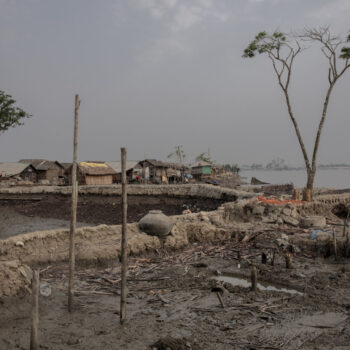In Madrid last week, negotiators from around the world tried to reach consensus at COP25, the chief event in the annual calendar for global climate diplomacy. This year, however, one of the victories for climate diplomacy in 2019 was won outside the halls of COP.
Adopted last month following a decision by country shareholders, the European Investment Bank’s new energy policy commits to phasing out fossil fuel investments. The world’s largest multilateral development bank thus becomes the first major multilateral bank to pursue fossil phaseout. This move exemplifies alignment with the Paris Agreement and represents a model for other development banks to follow.
Delivering the Paris Agreement is the defining challenge of the 21st century, not least because failure to respond to the climate crisis will imperil efforts to achieve sustainable development.An adequate response to climate change requires deep decarbonization toward global emissions neutrality. Whether this is done at sufficient speed will depend on the infrastructure choices we make and the capacities of our international institutions. Central to both of these agendas are multilateral development banks.
Collectively, the main multilateral development banks have committed to develop a joint approach to alignment with the Paris Agreement. Independently, EIB designed its new energy policy with a view to aligning with the Paris Agreement, working from the assumption that investing in fossil fuel projects would be misaligned with the Paris Agreement. With its new policy, EIB implicitly sets the bar for alignment.
The bank’s policy roots its fossil phaseout decision in the latest realities, acknowledging that the energy sector faces fundamental transformation due to technological, commercial, and climate change factors. For example, the EIB energy policy text sets strong precedents by explicitly acknowledging that efficiency and other systems approaches can enhance energy security, that renewables have undergone “dramatic cost reductions”, and that delivering the Paris Agreement goal of 1.5 degrees Celsius requires achieving global net-zero emissions by 2050.
Given the existence of lower-cost zero-emissions alternatives, development banks have little to no reason to finance expansion of fossil energies. Outdated arguments, however, persist, claiming fossil energies are somehow essential for development, without a rigorous analytical basis. These often include repeated characterizations of gas as a “transition” or “bridge” fuel, largely in relation to coal, but omit discussion of the growing financial risks to and the full lifecycle climate impacts of gas, especially in relation to alternatives.
Commercial arguments for fossil fuels tend to overlook the game-changing decrease in the cost of alternatives over the past 10 years — and overlook the rise in unprofitability of fossil energies that analysts project for the next 10. As costs of renewables and batteries decline, many fossil assets will be gradually edged out of markets due to noncompetitive operating costs.
Development-focused arguments for fossil fuels also neglect to address how fossil investments will drive global warming, threatening the development of small island developing states and other climate-vulnerable countries, resulting in existential risks from sea-level rise and other impacts. Fossil fuels may remain an important segment of the energy mix, but according to the Intergovernmental Panel on Climate Change SR15 climate report, their importance must diminish over the coming decades.
The world is currently not on track to meet the goals of the Paris Agreement, but enlightened policy-based reforms such as EIB’s can steer us in the right direction, especially if emulated widely by other development banks around the world.This year marks 75 years since the Bretton Woods Conference established much of the international financial architecture that we know today. Over the next 25 years, our international institutions must play a central role in stewarding global investment choices toward an emissions-neutral and climate-resilient future.
Addressing climate change will require reform in some of our main international financial institutions, and this process begins with bold reforms akin to those adopted at EIB.


